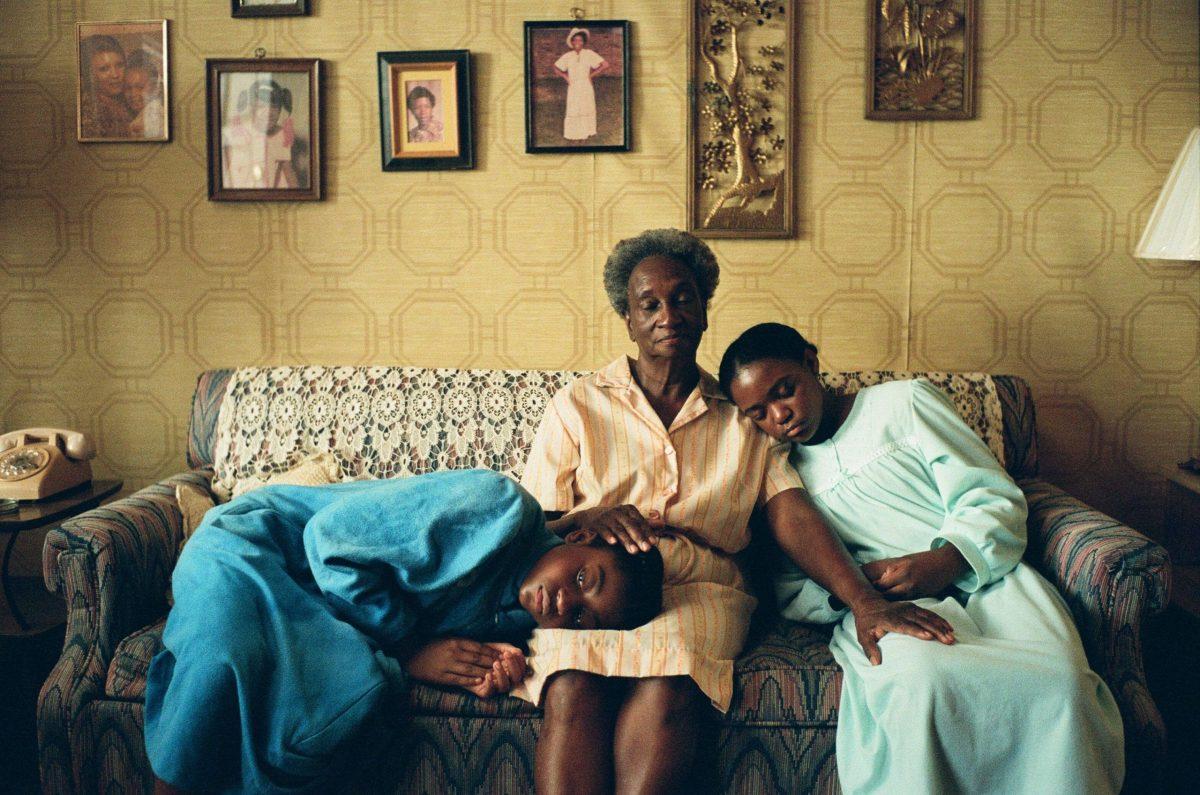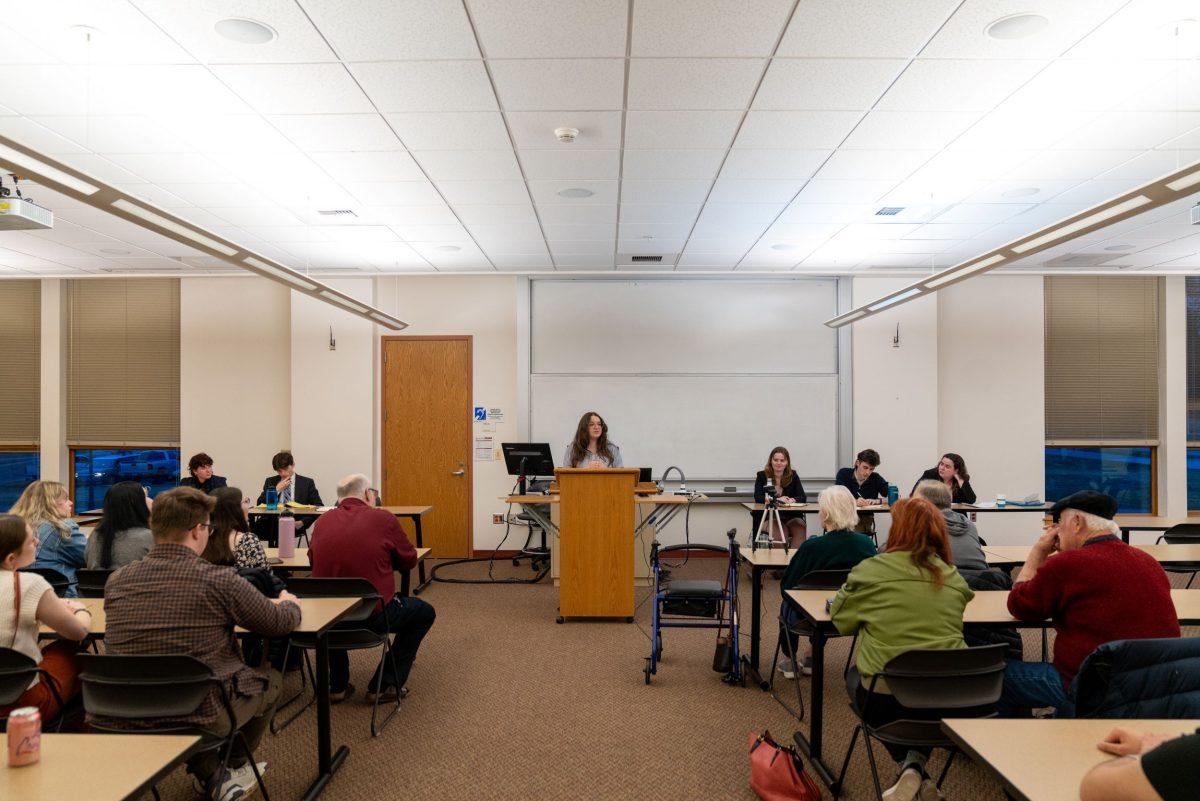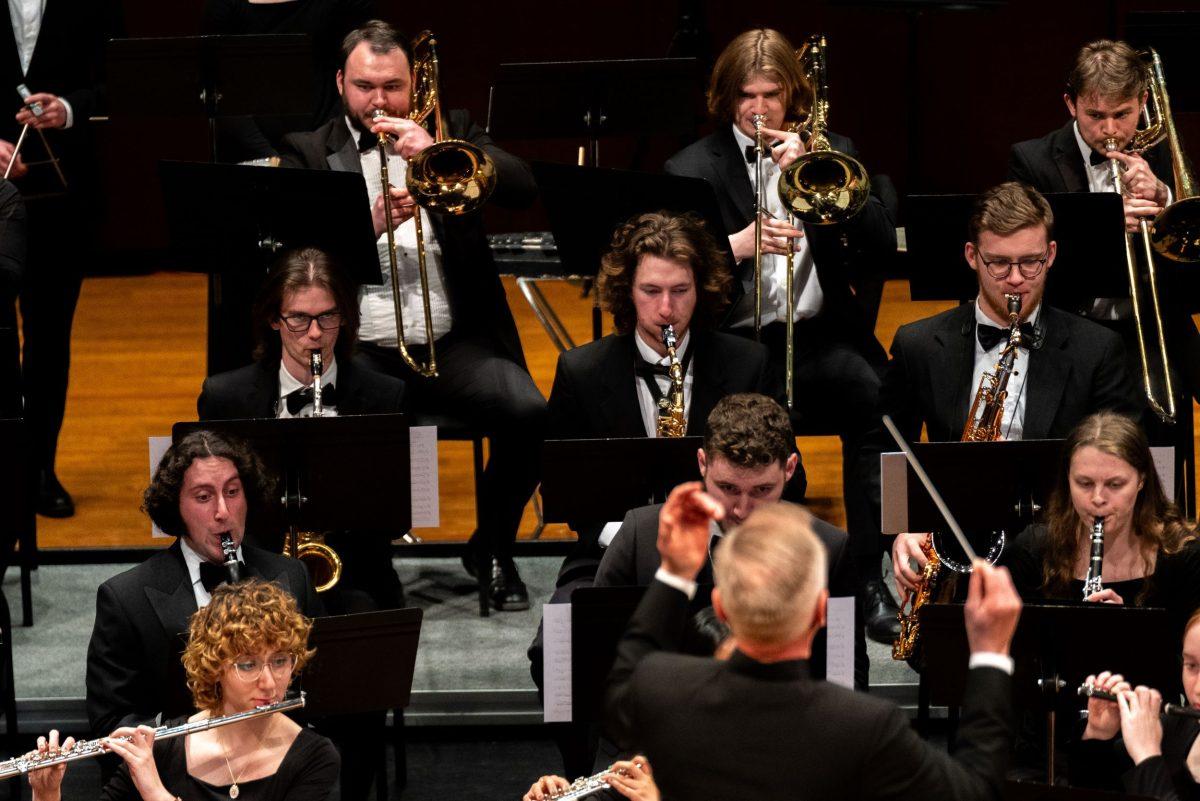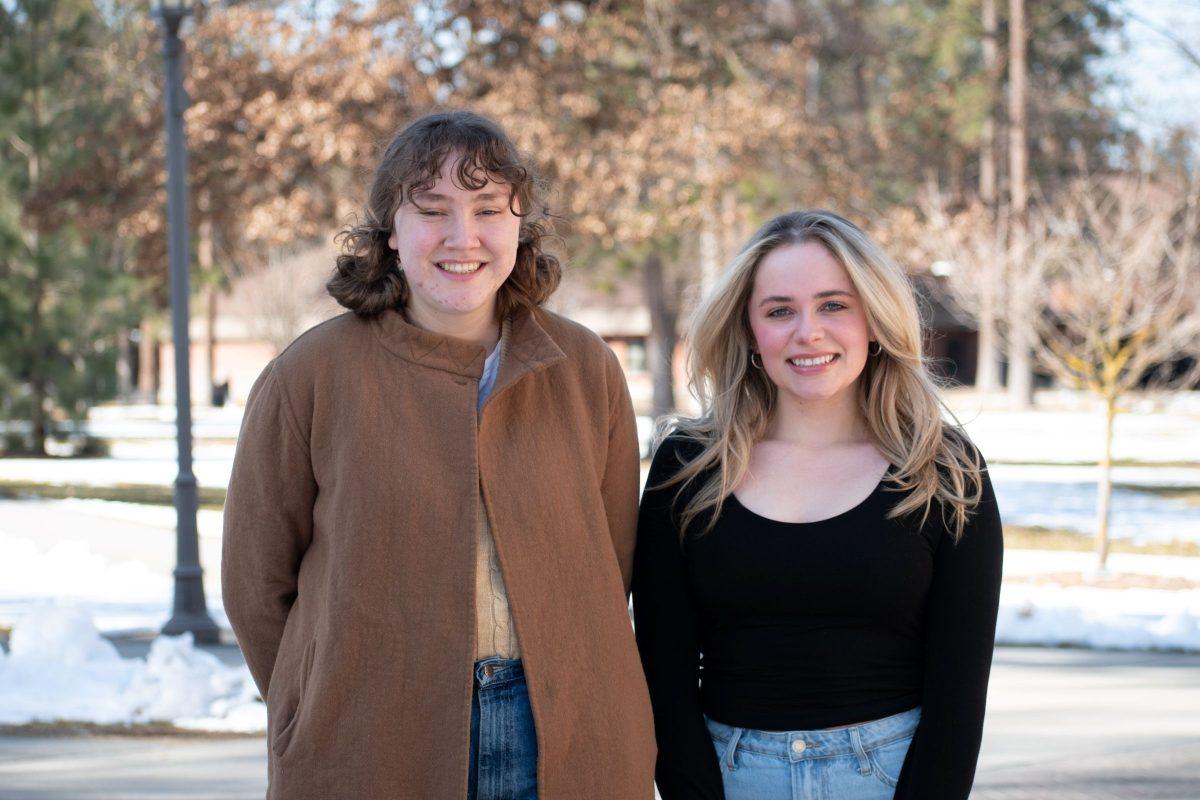Gabriela Garcia Medina shared her woman-empowered poetry with Whitworth students in the Hixson Union Building on Monday, Sept. 26. The 29-year-old spoken word poet has won numerous awards for her poetry and spoken word performances.
Medina shared six of her poems through a vibrant performance that utilized the rhythmic nature of spoken word poetry and dynamic body movements. Each poem she shared was deeply personal and infused with a voice for struggling people and a strong feminist conviction.
“It’s part of who I am because I am a woman who is trying to empower herself,” Medina said.
Whitworth junior Danica Rasely said the performance was really inspired.
“The poems sounded really real and she opened up about it afterwards,” Rasely said.
Medina is originally from Havana, Cuba and also lived in Europe for a time. Her Cuban heritage is exemplified through the lines of Spanish sprinkled throughout her poems. Medina said it’s natural to mix Spanish in her poetry because it’s how she thinks.
The first poem Medina performed, “World’s Greatest Magician,” was Spanish-filled and spoke a lot about her family and about using magic to turn Wal-Marts into homeless shelters and other ways to make the world better.
There was a somber tone to Medina’s poem “Four Women.” Medina said this poem makes her feel the most vulnerable because she tells her story of being in a physically abusive relationship in college. Her story is told along with three other women’s narratives: one who is raped, one who works in a sweatshop and a young gay black woman who is harassed for the way she dresses. “She doesn’t fit in their social box,” one line read.
For a long time, Medina didn’t want to perform “Four Women” because it made her feel exposed. She began to perform it after a friend challenged her to.
“There’s always someone in the room who will be touched by it,” Medina said.
Some of Medina’s more humorous pieces also contained feminist themes, but had students laughing at many of the lines. Her “Self-Empowered Love Poem” expressed her independence with lines such as: “Yes you complement me, but you don’t complete me.”
“My Intimate Revolution” was a poem about underwear. She prefaced the poem by telling the freshmen in the room to cover their ears and began with the first line: “I have an addiction to the friction of trashy lingerie.”
While the poem described many of Medina’s undergarments, she said the poem is really about being a woman. It’s about practicing self-love. She did a lot of activism work in college and wrote this poem after a man told her she wasn’t a revolutionist if she dressed sexy.
“It’s not an excuse for you to question my feminism,” one line said. “The revolution has nothing to do with my underwear or the cut or the fit of the clothes that I wear.”
Medina donned a colorful apron for “At Least I’m a Good Poet,” a poem about her trouble cooking a vegan Cuban meal for her boyfriend. She described it “like the apocalypse is coming and all my veggies are going to hell.”
Medina closed her performance with “Extensions of My Poetry.” Filled with details of personal insecurities and quirks, the poem contained everything she would never write poems about, Medina said.
She emphasized the need for people to see the person she is behind the words and repeated the line: “I am not an extension of my poetry, my poetry is an extension of me.”
Sophomore Andrew Juarez said Medina’s performance was very fresh and heartfelt.
“She has a lot of unique qualities to her poetry,” Juarez said. “It has a great story behind it.”
Medina graduated from UCLA’s School of Theatre, Film and Television and now performs for a living on college campuses. She said it’s hard to say she’s a poet for a living because many people don’t believe her.
Medina’s mother had wanted her to be a lawyer, engineer or doctor. However, despite struggling for money in the beginning, Medina is now a successful poet and her mom is very supportive.
Medina said she is living the dream while she performs her poetry around the country.
Spoken word is important because it has power to really teach people, Medina said.






